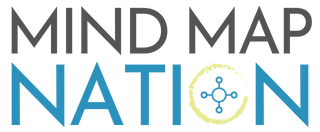Cutting Through Illusions
“Remember that as it is a shame to be surprised if the fig-tree produces figs, so it is for the physician and the helmsman to be surprised if a man has a fever, or if the wind is unfavorable.”
- Marcus Aurelius, Meditations
What illusions are we living under?
I was going through a rough patch in London seven years ago.
The startup that I had left a prestigious venture capital position for was tanking. I was going through a toxic breakup that brought that brought out the worst in me. The ambitious initiatives that I had spearheaded at the business school were falling apart just one year after I left. Even the weather was getting darker and colder as we shifted into Winter.
I was angry, hopeless, and desperate all at the same time.
So when I came across the above passage from Meditations at a cozy bookstore in Piccadilly, it was a huge ah-hah moment. I realized that if I had kept my first impressions at bay, had deeply listened and observed instead, been more patient even, I would have caught on to the red flags.
In hindsight, the people who had hurt me were perfectly aligned with their propensity. The nature of the “opportunities” I had put all my hopes in were in fact laden with risk that I wasn’t ready for.
I was ashamed for expecting fig trees to produce anything but figs.
Since then, I have been obsessed with understanding the nature of things. Not simply out of philosophical curiosity, but so that I am not caught off guard by life.
When we are negatively surprised—call it dismay or shock—we become susceptible to distortions shaped by fear, anger, and pride. As a result, we lose our capacity to think clearly and lash out, leading to a death spiral of blaming externals and loathing ourselves.
Over the years, I’ve learned to put this principle to practice in a variety of scenarios:
Starting a new business: As an entrepreneur, I have to be prepared for the best and worst to happen, otherwise I will be easily swayed by the despair of the troughs and blinded by the euphoria of the crests. Such turmoil comes with the territory. If I can’t take it, then I shouldn’t be playing this game in the first place. Every successful founder I know has a high degree of self awareness.
Making friends: Knowing someone’s past, present, future (hopes), and world views is critical to understanding how they think and feel, and ultimately accepting who they truly are to begin building authentic relationships rather than grasping at illusions. The Person Mind Map is my go-to tool for this purpose. It’s surprising how much I can capture after just the first meeting.
Closing deals: When I gauge a prospective corporate client, the first thing I do is to understand their world view by digging into their business model, KPIs, historical background, and strategic position. In other words, to map out their desires, fears, and identity. The nature of the CEO plays a big role, especially for small private companies.
Making sense of news: Wars and economic upheaval is often the result of historical events and geographical constraints. If you don’t understand the context, it’s easy to get swept up in the 24-hour news cyclone. In the AI age where content is overabundant, it behooves us to cultivate a internal critical thinking engine to cut through illusions.
Not only is this mindset one of the most useful techniques in my arsenal, it’s also extremely efficient.
The nature of something doesn’t change as quickly as current technological, political and social trends. In fact, surface level effects are driven by the very nature of the field and its players.
As I continue to navigate life's challenges with these strategies, I'm curious to hear about your methods. How do you handle life’s unpredictabilities? Tag me on Instagram or reply to this essay to share your insights.
Make the most of your mind maps
Thanks for reading this article. If you found it useful, you can get a new mind map in your inbox every week. Epiphany is your dose of structured thinking and ordered chaos.

